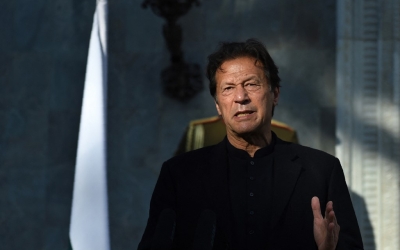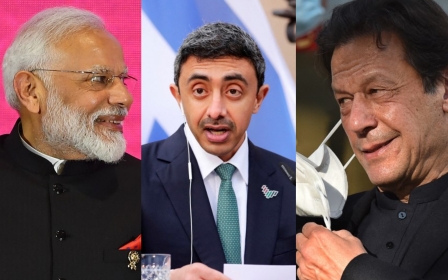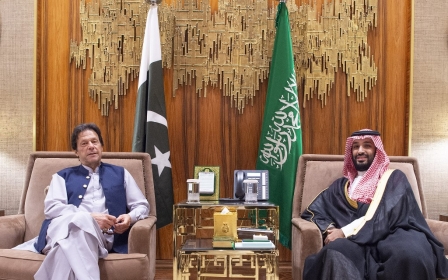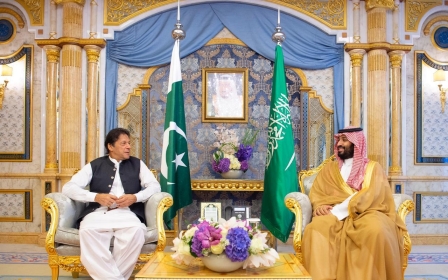Saudi Arabia agrees to restart Pakistan oil deal to curb Iranian influence: Report
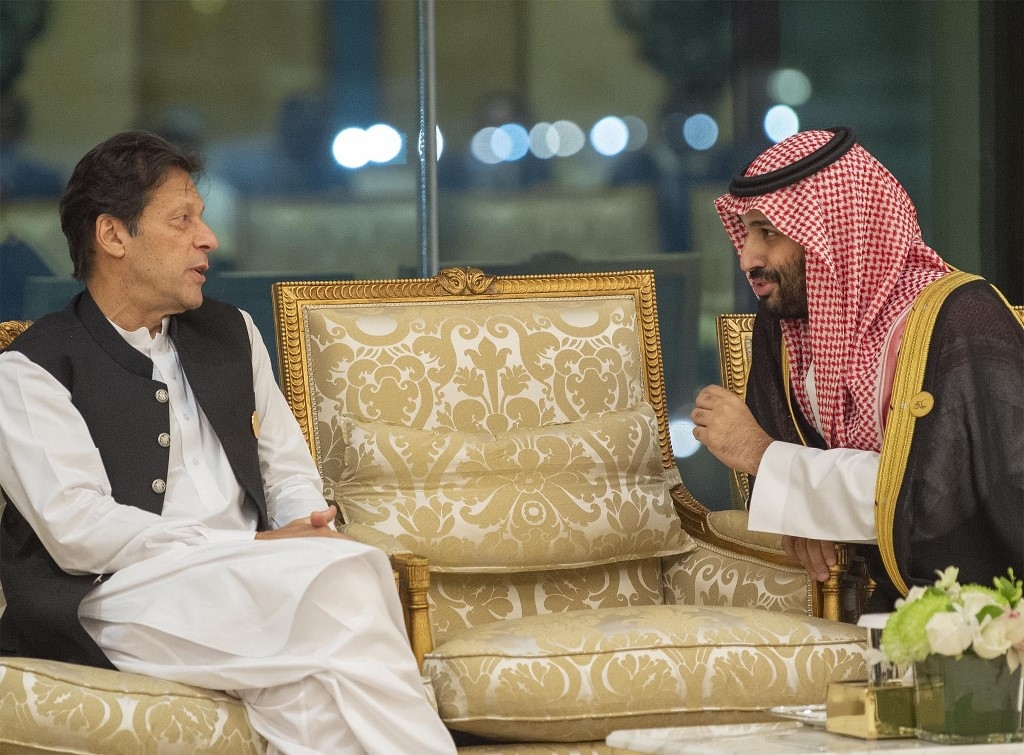
Saudi Arabia has agreed to restart oil aid to Pakistan in an effort to steer Islamabad away from Iranian influence, Pakistani officials told the Financial Times.
A senior Pakistani official told the newspaper that the deal, worth at least $1.5bn annually, would restart in July after the previous oil credit of $3.4bn was put on hold last year when ties frayed.
"Our relations with Saudi Arabia have recovered from [a downturn] earlier," the senior Pakistani official said.
"Saudi Arabia's support will come through deferred payments [on oil] and the Saudis are looking to resume their investment plans in Pakistan."
Relations between the two longtime allies soured last summer when Pakistan lashed out at the kingdom for not convening a meeting of the Organisation of Islamic Cooperation (OIC) over India's nullification of Kashmir's special status.
Saudi Arabia responded by pushing Pakistan to repay the $3.4bn interest-free loan it had extended to the country in 2018, at a time when the South Asian nation was suffering dire economic conditions.
Pakistan returned $1bn of the loan in December and turned to China for financial assistance.
Relations between the two countries appeared to ease after Prime Minister Imran Khan visited Saudi Arabia in May and met with Saudi Crown Prince Mohammed bin Salman.
The new Saudi offer is less than half of the previous offer. However, Fahad Rauf, head of equity research at Ismail Iqbal Securities, said any "amount of dollars helps because time and again we face a current account crisis. And with these prices north of $70 a barrel, anything helps."
Pakistan's foreign reserves were more than $16bn in June, compared to $7bn in 2019 before it entered into a $6bn loan programme from the International Monetary Fund (IMF).
In recent months, Saudi Arabia has embarked on a diplomatic shift, ending a three-year blockade on Gulf neighbour Qatar, as Riyadh works to counter regional foe Iran's influence in the region.
Pakistan-Saudi tensions
In recent years, Islamabad's ties with Riyadh had been beset with problems in addition to the incident over the issue of Kashmir.
In 2015, Pakistan refused to send its troops to fight in the Saudi-led coalition's war against the Houthi rebels in Yemen.
In 2019, under pressure from Saudi Arabia, Pakistan cancelled a planned visit to Malaysia, where Middle East leaders including Qatari Emir Sheikh Tamim Hamad al-Thani, Turkey's Recep Tayyip Erdogan and Iranian President Hassan Rouhani attended a summit of Muslim-majority nations outside the scope of the Riyadh-led OIC.
The frayed ties came at a period in which Pakistan developed closer ties with Turkey and Khan created a strong relationship with Turkish President Recep Tayyip Erdogan.
Between 2016 and 2019, Turkey had become the fourth-largest source of arms to Pakistan, surpassing the United States.
Middle East Eye delivers independent and unrivalled coverage and analysis of the Middle East, North Africa and beyond. To learn more about republishing this content and the associated fees, please fill out this form. More about MEE can be found here.


